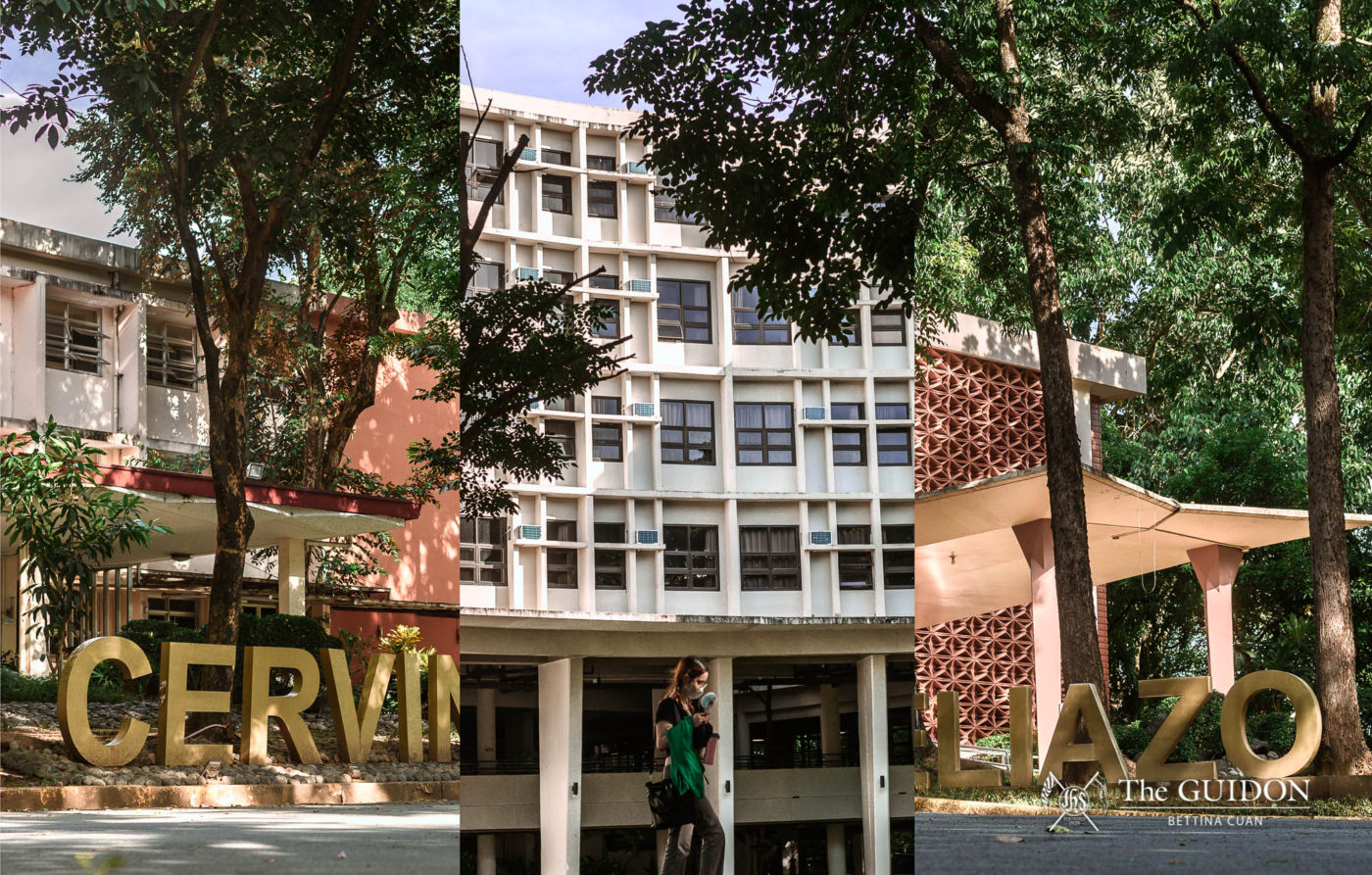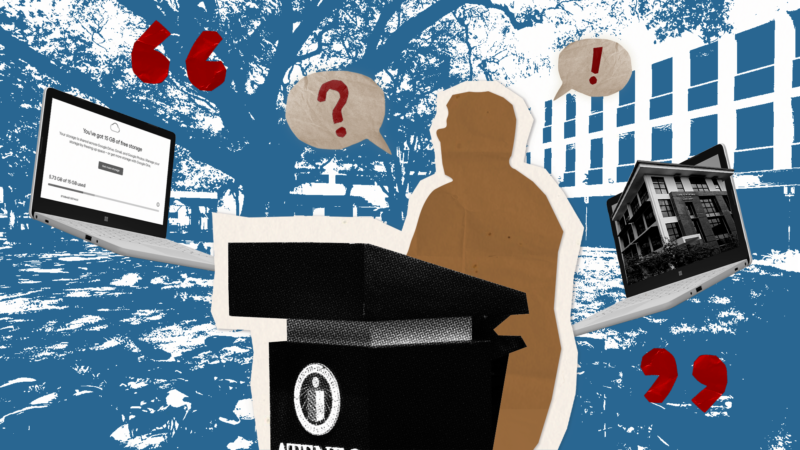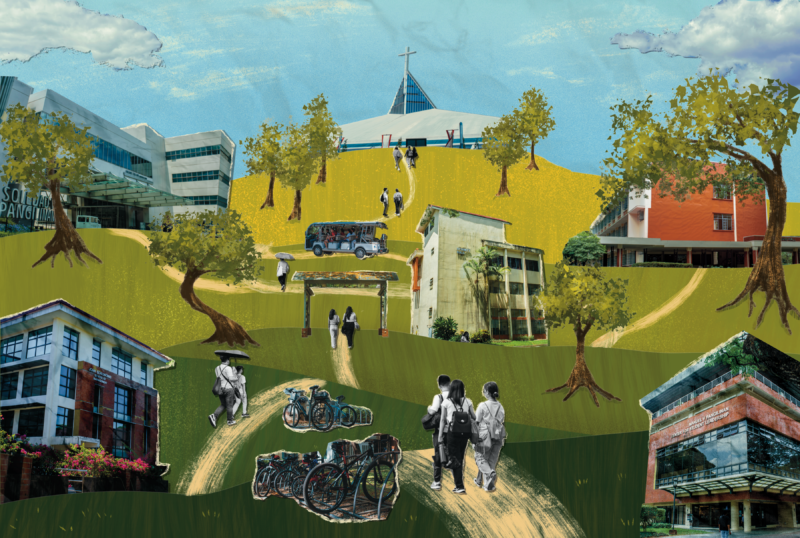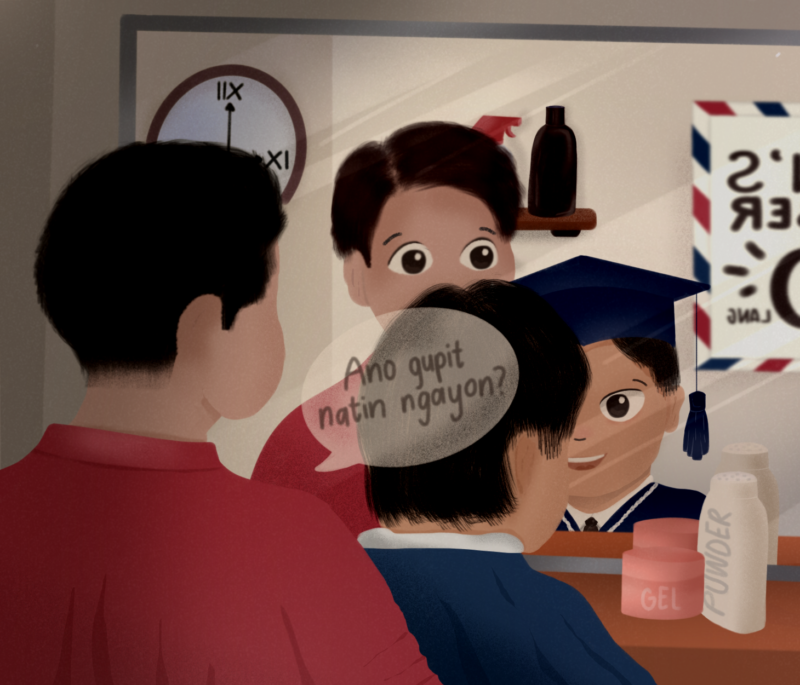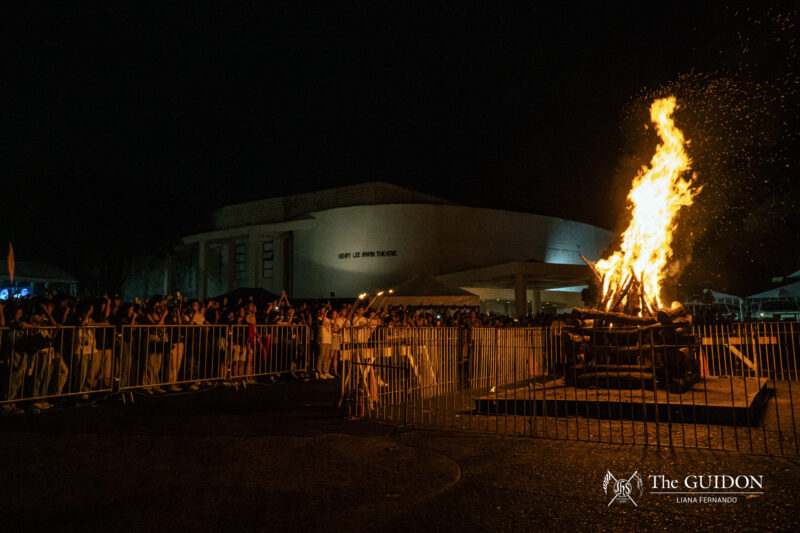WITH the return of dorming students to the Ateneo Residence Halls (ARH), former members of the Ateneo Resident Students Association (ARSA) Central Board met online last July 20 to discuss ARSA’s reactivation.
Present in the discussion for the student resident sector’s revival were resident student volunteers and the Sanggunian Department of Administrative Affairs Chairperson Bernice Mendoza to help guide through the process of sector reactivation.
According to Mendoza, re-establishing ARSA means the Association can join the Sanggunian Central Assembly once again and raise student residents’ issues to the administration. Previously, the administration and ARSA collaborated with one another to handle problems regarding room assignments—and their resulting impact on dormer culture and welfare—within the ARH.
In a bid to reactivate ARSA, the meeting attendees discussed re-electing a new ARSA central board. They also talked about introducing first-time dormer-students to ARSA and accommodating students who were unapproved to stay in the dorms.
Reviving the sector
Before such revival efforts, ARSA has been on a hiatus since October 2021. With no dormer-students residing on campus in AY 2021-2022 due to the pandemic, the association was barred from electing any new central board members and the sector was thus dissolved.
Mendoza stated that for ARSA to regain accreditation once again, students residing in the ARH must establish a working technical group and president. “ARSA is an independent sector. […] If they have concerns that they want to be raised to the administrators they need representation in the central assembly,” she clarified.
However, it may take until the second semester to restore the association due to the large influx of new dormer-students who are unaware of ARSA, making it difficult to recruit volunteers for the working technical group.
Expounding on this, Former ARSA Central Board member Anton Burog said that the majority of students who resided on campus before the pandemic are already incoming fourth year students.
“There are now three batches of new faces because the incoming freshmen, sophomores and juniors have never stayed in the dorm. […] Teaching the culture will be so much more difficult because only a quarter of the dormers know what ARSA is,” he said.
Complicating the bid for revival, Burog explained that many former ARSA members are experiencing difficulty in filing their dorm application due to the 25% capacity reduction and the new criteria for acceptance. Currently, the priority and ranking for ARH acceptance favors scholars endorsed by the Office of Admission and Aid, varsity athletes endorsed by the University Athletics Office, and students who were located out of town.
ARH Director Rene San Andres further added that as new dormer-students enter the residence halls, so too will new resident advisors. Many of the previous advisors left the University in 2021, and as such, the ARH is currently in the process of recruiting new ones. Resident advisors will still uphold the same roles, being assigned to different ARH buildings acting as counselors and mentors towards students.
In the meantime, Office of Student Activities Formator Roxanne Lopez stated that while the sector is being re-established, the goal is to have more students who are willing to volunteer in gathering concerns and facilitating student activities in the dorms.
Making headway
Current dormer and student volunteer Earl Lopina welcomed changes to the current ARSA composition, citing them as an opportunity for a new culture in ARSA to emerge. She was happy to share that starting the first semester of AY 2022-2023, the International Residence Hall (IRH) residents will be fully integrated into the ARSA community.
Previously, these students—considered Associate Resident Students—could avail the student residents services but their involvement in resident events and activities needed to be approved by the ARSA Central Board. Now, with the integration, foreign students will be cooperating more with ARSA, helping to provide diversity and feedback on how to better accommodate international students.
However, Lopina still hopes to bring back a few aspects of the “old” ARSA culture, mentioning the possibility of re-establishing the Freshman Care Committee, a support group that would be for both freshman and sophomores who are new to the dorms.
“They (ARSA) gave us a community when we were just starting out at [the] LS back when we were awkward freshmen and we didn’t know anything. … Our staff really became that family for us,” Lopina said.
As of writing, the University has announced that students may apply for dorm slots once again.
For those who are unable to dorm on campus, Mendoza announced that the Sanggunian has created an Off-campus Accommodations Database. Using the database, students may search for potential roommates or dorming establishments outside the University. Students who own off-campus dorm rooms may also put up their units for rent in the database.

